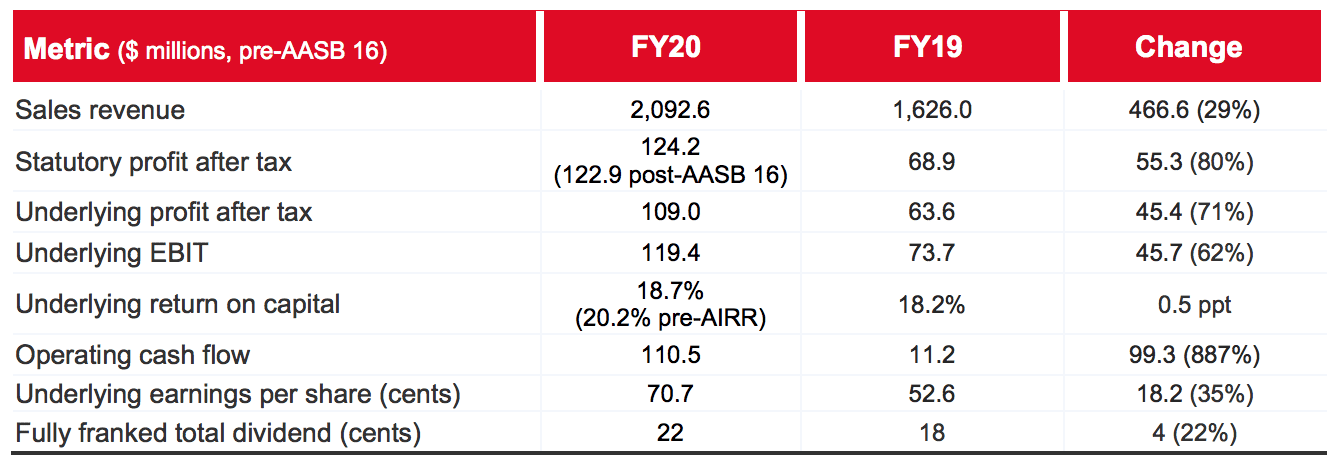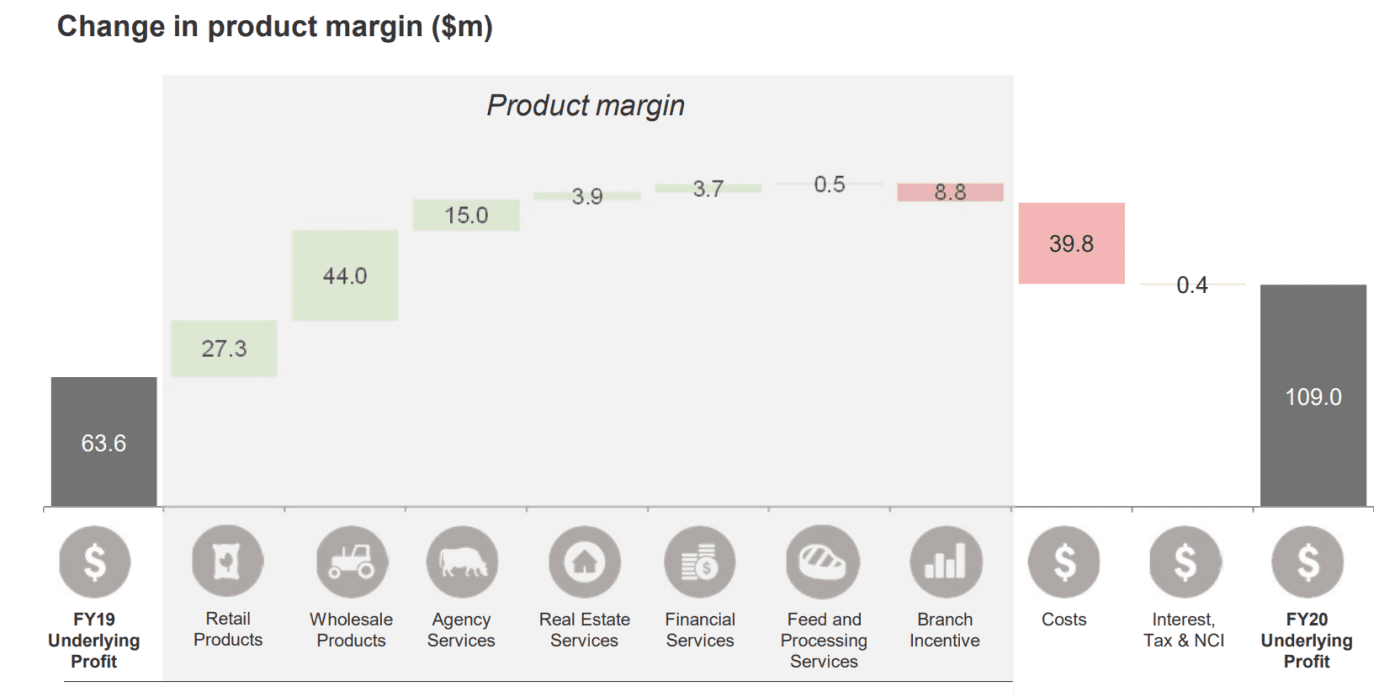Australian agribusiness Elders has this morning announced a statutory profit after tax of $122.9 million and a fully franked final dividend of 13 cents per share in its full year results for the 12 months to September 2020.
An Elders statement said the strong result demonstrates the resilience of its business model in a year marked by drought, bushfire and COVID-19.
The results included underlying earnings before interest and tax (EBIT) of $119.4m, 62 percent up on FY19, and underlying earnings per share (EPS) of 70.7 cents, 35pc above the previous financial year.
Elders’ statement to the ASX said the result was driven by gross margin growth across all state geographies and products, combined with continued cost control and capital allocation discipline.
“The performance of our Rural Products division was a highlight. The acquisition and integration of leading rural supplies wholesaler AIRR added $44.0 million in wholesale gross margin, well in excess of acquisition business case projections.
“Elders also made excellent progress on its backward integration strategy, selling more of its own branded products at higher margins.
‘Within Agency Services, higher livestock prices provided upside and more than offset the soft wool market. Our Real Estate Services division achieved strong growth in both broadacre and residential property turnover.
“Financial Services delivered above acquisition case growth for the Livestock in Transit delivery warranty product.”
Elders’ Chief Executive Officer and Managing Director, Mark Allison, attributed the outcome to the company’s clear and methodical Eight Point Plan strategy, combined with “its nimble response to challenges that arose throughout the year”.
“Our solid business foundations and strict financial discipline, together with a commitment to ensuring the safety and prosperity of clients, communities and staff across Australia allowed us to succeed despite challenging operating conditions in FY20,” Mr Allison said.
“When the COVID-19 pandemic emerged, we proactively established a COVID-19 Response Committee that convened almost daily to monitor the evolving situation and respond swiftly. We focussed on minimising the risk to our employees and the communities we operate in whilst also ensuring we could continue to serve our clients and play our part in keeping the food supply chain operating.”
Cancellation of COVID-19 working capital facility
One of the COVID-19 response measures Elders undertook in May 2020 was to establish a $50m working capital facility to ensure the business had sufficient balance sheet headroom to withstand potential business interruptions as a result of the pandemic.
Six months later, Elders says it has has experienced no material business impact from COVID-19 and consequently, the facility has not been utilised since its inception.
“With low levels of community transmission, advances in contact tracing and progress towards a vaccine, the facility is now surplus to Elders’ needs and has been cancelled,” its statement said.
Launch of third Eight Point Plan
FY20 saw Elders close out its second Eight Point Plan, which it says delivered consistent financial returns through the agricultural cycles and delivering on our advantage of being a pure play agribusiness.
“Our FY20 results highlight the resilience of our business, the benefits of our diversification across both geographies and products, and our acquisition strategy,” Mr Allison said.
In FY21, Elders is embarking on a new, third, Eight Point Plan.
“Under our newly launched Eight Point Plan, we have again set ambitious financial goals – we are targeting 5 to 10pc growth in EBIT and EPS through the agricultural cycles at a compelling ROC of 15pc.
FY21 outlook
Elders says the area planted to summer crop is expected to rebound from historically low levels last year, resulting in recoveries in demand for crop protection and fertiliser.
Cattle prices are expected to soften from the record high prices seen in FY20, however are expected to remain in the relatively high range.
Reduced consumer demand for apparel and disrupted clothing supply chains has raised levels of unsold textiles and raw fibres, which will likely result in wool prices remaining low in the near-term.
High levels of demand for farmland is expected to continue while potential farmland sellers are deferring selling decisions due to uncertainty created by COVID-19; this is expected to deliver ongoing strong farmland values in FY21.
Source: Elders Ltd





HAVE YOUR SAY